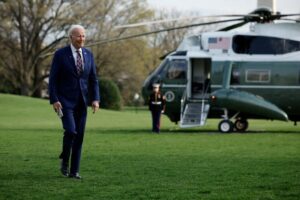Does the US president need the 2002 Authorization for the Use of Military Force (AUMF) legislation to retain troops in the Middle East, particularly Iraq, to keep Iran in check? Senate Republican Leader Mitch McConnell thought so. In the wake of deadly missile attacks by Iran-backed militias against US troops in Syria, McConnell believed retaining the AUMF would make American presence in Iraq and Syria a more imposing influence. As a result, there would be less impediment to rapid military responses to attacks on Americans. But the Republican Senate minority leader’s objection to repealing AUMF was defeated 66-30.
Senate Doesn’t Go McConnell’s Way
McConnell argued forcefully in a written statement:
“I am opposed to Congress sunsetting any military force authorizations in the Middle East. Our terrorist enemies aren’t sunsetting their war against us. And when we deploy our servicemembers in harm’s way, we need to supply them with all the support and legal authorities that we can…Our enemies in Iran, who have spent two decades targeting and killing Americans in the Middle East, would be delighted to see America dial down our military presence, authorities, and activities in Iraq. Tehran wants to push us out of Iraq and Syria. Why should Congress make that easier?”
Nonetheless, the bill repeals both AUMFs for 2002, giving then-President George W. Bush the authority to send US armed forces into Iraq to take down the Saddam Hussein regime and the 1991 authorization for the Gulf War. However, the legislation lets stand the 2001 AUMF passed in the aftermath of the 9/11 terrorist attacks on America. “An amendment to include that measure in the bill, introduced by Senator Rand Paul (R-KY), was voted down 86-9,” Elizabeth Elkind wrote for Fox News. The defeat of Paul’s amendment indicates there is a recognition in the Senate that the executive branch needs some level of flexibility to engage militarily the worldwide terrorist threat to Americans.
Leaving in place the 2001 legislation passed just days after al-Qaeda killed 3,000 people on American soil provides broad authorities to address terrorism. US presidents are authorized “to use all necessary and appropriate force against those nations, organizations, or persons he determines planned, authorized, committed or aided the terrorist attacks on September 11, 2001, or harbored such organizations or persons, in order to prevent any future acts of international terrorism against the United States.”
AUMF Still Available to Engage Terrorists
Subsequently, the 2001 AUMF has been used to justify myriad operations and interventions by US military forces. “US presidents have cited the 2001 Authorization for the use of Military Force (AUMF) to justify an unknown number of military operations, including airstrikes, combat, detention, and supporting partner militaries, in at least 22 countries,” according to Stephanie Savell, Senior Researcher at Brown’s Watson Institute. Among the countries where presidents used the 2001 AUMF for military operations, or airstrikes were Afghanistan, Djibouti, Iraq, Libya, and Pakistan.

Joe Biden (Photo by Chip Somodevilla/Getty Images)
“While presidents in both parties have typically resisted congressional efforts to pull back their war powers, the Biden administration has said it supports repealing the 2002 and 1991 AUMFs since they are not currently the main legal justification for any military operations,” Rebecca Kheel explained in Military.com. Biden’s national security team has not demonstrated enthusiasm for confronting threats head-on, so the administration’s position is not surprising. Furthermore, Article II of the US Constitution makes protecting US armed forces and the homeland an obligation of the president.
The legislation now goes to the House of Representatives, where similar legislation has had mixed reviews. Rather than follow the Senate, Chairman of the House Foreign Affairs Committee, Mike McCaul (R-TX), “has said he wants to replace them (AUMFs) with one that specifically targets Iran-backed militias in Iraq,” Kheel wrote. Retaining the 2001 AUMF may be the only authority the current and future presidents will need to address global terrorism as well as protecting the use of troops in foreign countries. Being able to reach out with an effective airstrike does get an enemy’s attention.
The views expressed are those of the author and not of any other affiliation.
All opinions expressed are those of the author and do not necessarily represent those of Liberty Nation.
Do you have an opinion about this article? We’d love to hear it! If you send your comments to [email protected], we might even publish your edited remarks in our new feature, LN Readers Speak Out. Remember to include the title of the article along with your name, city, and state.
Please respect our republishing guidelines. Republication permission does not equal site endorsement. Click here.

